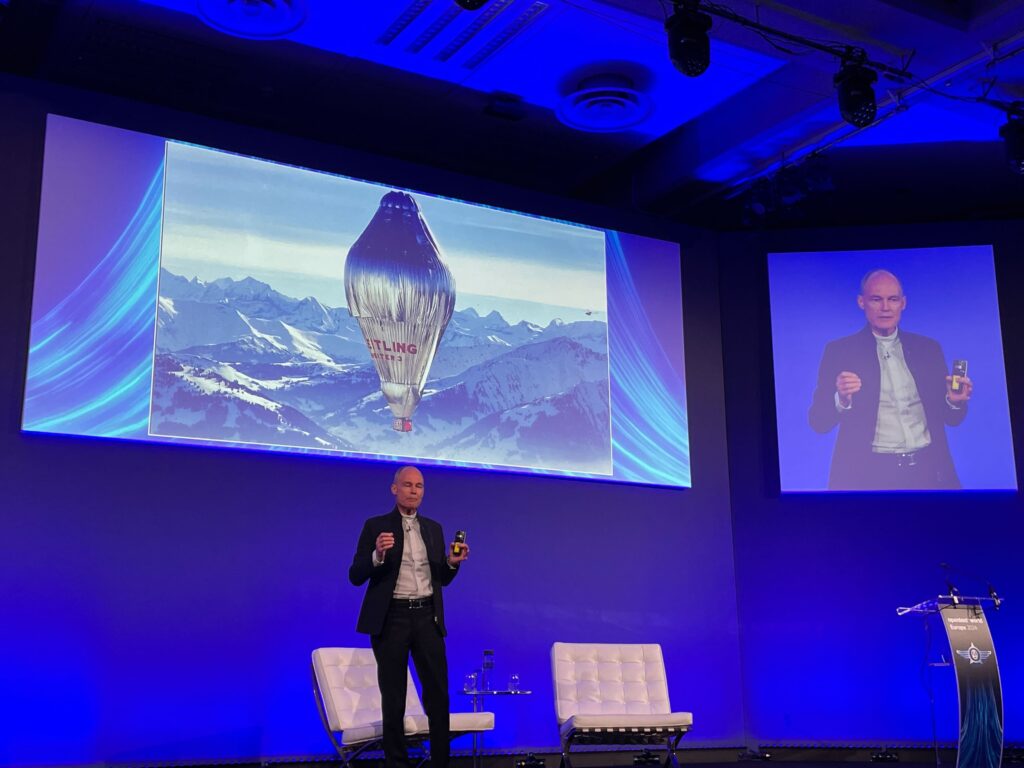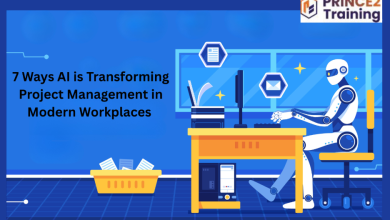
“Let the machines do the work” is OpenText CEO Mark Barrenechea’s key piece of advice when it comes to data and content management. And this no longer just means the menial, low-level tasks.
OpenText is one of the world’s leading enterprise content management (ECM) companies, boasting a customer base of over 50,000 in Europe and the UK and competing with some of the leading names in the tech industry, including AWS, Microsoft, and IBM. Founded in 1991 out of a collaboration between the universities of Oxford and Waterloo to create the first digital version of the Oxford English Dictionary, OpenText has a solid track record of driving digital transformation and offers its customers a comprehensive and fully integrated software package with cutting edge AI-enhanced capabilities.
Yesterday (April 15th) at the OpenText World Conference, in London, the business showcased the next cloud edition (CE 24.2) of its Aviator suite of AI-enhanced digital tools. CE 24.2 represents the latest step on OpenText’s journey to creating a fully autonomous cloud, capable of creating apps, software, and code on its own. This is a project that OpenText has coined Titanium X, which they expect to complete with version CE 25.2 in a year’s time.
While their product has major applications for the IT and software development industry, this is not all. OpenText claims that its product has a broad set of over 100 content-related use cases in businesses of all sectors, from banking & insurance to public transport and aviation.
Some of the most exciting new features include:
- A generative AI chat user interface that fosters intelligent conversation, and enables the user to gain business insights based upon company-wide data in a variety of forms, including different languages and dialects (we were even shown a strange yet surprisingly comprehensible version of business-pirate!)
- A new multi-repository Aviator search function, which can turn data of many types (including video, PDF/word document, image, etc.) into concise and digestible forms of data, such as tables or graphs, that help the user gain quicker insight into what they need to know.
Live demonstrations revealed how these features could cut down the workloads for bankers, coders, lawyers, and many roles. Lawyers and police investigators, for example, could potentially cut down the preparatory stages of their work from 2 weeks or more spent reading over case files and making notes, to just a couple of days by getting the key facts and insights they need from Aviator in just seconds.
Aside from these new features, OpenText continues to offer flexible and attractive options to its customers, with out-of-the-box software integration, eliminating the need for data customization, and enabling compatibility with other partners including SAP, Microsoft, Salesforce, Oracle, and Google.
Navigating the currents of innovation
Guest speaker Bertrand Piccard, Co-Founder and CEO of Solar Impulse, rounded off the keynote speeches with a rousing talk on his experience as a human aviator, having accomplished several first-of-their-kind feats such as traversing the globe in a hot air balloon, and more recently, flying around the world in a solar-powered plane without using a drop of fuel.
Using analogies from his single-handed flying adventures, Piccard painted a dreamy picture of embracing change and driving innovation. In a hot air balloon, he explained, the only way to change direction is to move up into a different wind current – you do this by dropping ballast. In his metaphor, this is equivalent to dropping our certainties, i.e. the beliefs and limitations that we take for granted and accept without question.

Of course, this metaphor only holds up if you think that your beliefs and certainties are 1) disposable, and 2) separate from who you are as an individual. Otherwise, dropping ballast might be more akin to cutting off your limb and throwing it overboard for the worthy cause of ‘progress’.
Nevertheless, it provoked us, and presumably many in the audience to think a bit harder about our limited understanding of AI capabilities, as well as our human potential, and wonder how this is impacting our capacity for innovation and change. Of course, when it comes to the world of AI, progress is rapid which means that there are very few certainties, and even fewer which last for long.
In this sense, it is more likely the beliefs about ourselves that are holding us back. For millennia, humans have tried, and continue to try, to pinpoint exactly what it is that makes us unique as a species. In today’s technology-dominated world, we want to cling to the idea that we are irreplaceable by machines. But perhaps we are. And perhaps this possibility isn’t as terrifying as we think.
Piccard’s vision of the future is a world in which AI can set people free, and enable them to stop relying on decisions made for them in ways they don’t understand. Maybe our replacement by machines is the way that we set ourselves free. Free from the need to spend the majority of our lives working just to maintain what’s already there. And more fundamentally, free from the need to feel like we have to be unique and irreplaceable in order to survive.
The future of work with advanced ECM
For OpenText, there is no such thing as a software company. In their view, all companies are now software companies, and the future of work is a highly automated one. According to CEO Mark Barrenechea, a large proportion of tasks (roughly 80%) in many jobs can and should be done by AI. And this includes not only the low-skilled, highly repetitive, and uncreative tasks, such as translating data from one format to another, but also creative, problem-solving tasks such as coding and web design.
This mindset breaks away from the traditional, yet increasingly challenged the view that creativity is one of the unique features of humankind that sets them apart from machines. No doubt this view would be one of the ‘certainties’ that Piccard would encourage us to let go of, dropping it like a ballast from our metaphorical hot air balloons so we can fly higher and pick up speed in a new direction.
When we asked Barrenechea further about his viewpoint, including what he thought about ‘human in the loop’ models for AI integration, he stood by his original statement about letting machines do the work, pointing out that only machines have the potential to eliminate human error, which could have a big impact in many areas of loss, including protecting against data breaches and reducing car accidents.
Nevertheless, he conceded that having machines do more and more of the work has raised the bar on entry-level skills, admitting that over his 12 years as OpenText’s CEO, their expectations for the skills of an entry-level engineer had increased alongside the automation of many of their lower-level tasks. He also added, almost as an afterthought, that as much as we need to let machines do the work which they can do better than humans, we still need to guard against letting machines do the work of humans.
Exactly what should be considered the work of humans remains a fuzzy and changing area… However, one thing is for certain, which is that OpenText by no means intends to let fears over AI and the future of human employment stand in the way of progress.


